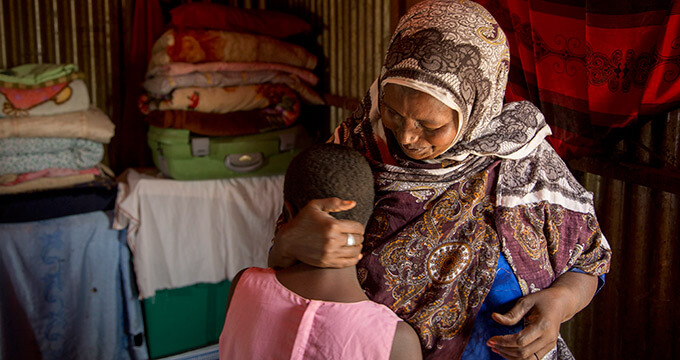More than 35,000 women and girls living in Belgium are estimated to be circumcised or at risk of female genital mutilation (FGM), which is a human rights violation, a recent study has found.
At least 200 million girls and women in the world have undergone some form of FGM, and while most of them still live in countries in Africa, the Middle East and Asia, it is wrong to assume this is not a problem that concerns western countries.
"The summer holidays start in a few days, a critical time for women and girls at risk of genital mutilation to leave for their home countries. These unacceptable practices are terribly harmful both physically and mentally," Sarah Schlitz, State Secretary for Gender Equality, Equal Opportunities and Diversity, said.
The recent study, commissioned by Schlitz and Public Health Frank Minister Vandenbroucke, stressed that the issue also concerns Belgium as a host country for girls and women fleeing war or gender-based violence.
It found that there are more than 23,000 circumcised women living in Belgium, and more than 12,000 underage girls of circumcised mothers are at risk of female genital mutilation if no prevention work is done, with the largest number living in Flanders (16,500), followed by the Brussels- Capital-Region (10,000) and Wallonia (8,800).
Improving policies and prevention
The aim of the study, the fourth of its kind, was to estimate the number of people affected in order to adapt Belgium's prevention and management systems, according to a statement from Schlitz and Vandenbroucke. The figures are estimates using data from the population register and the prevalence of FGM in the countries of origin.
"This joint study finally gives us a clear picture of the extent of this harmful practice in Belgium," Vandenbroucke said. "The results are staggering. This is why we continue to offer support to girls and women who are victims of FGM."
Since the last study was carried out in 2016, the number of affected women and girls in Flanders increased by 45%.
"This significant increase can be explained by the reception of women from countries where FGM is practised at a rate of over 90%, such as Guinea and Somalia," Fabienne Richard, Director of GAMS, said.
Related News
- Over 1,000 reports of gender-based discrimination in Belgium last year
- Belgium 'can and must do better on human rights,' says Amnesty
Two campaigns have been launched in Belgium, one to raise awareness among families of young girls and professionals they come in contact with that there is a risk of FGM when they go on holiday.
The second campaign focuses on drawing attention to the care centres in Belgium which offer medical, psychological, sexological and surgical support to excised women (located at the CHU Saint-Pierre "CeMAViE" in Brussels and at the UZ in Ghent).
Schlitz has also included more measures to fight against female genital mutilation in the National Action Plan to combat gender-based violence, adopted last November.

